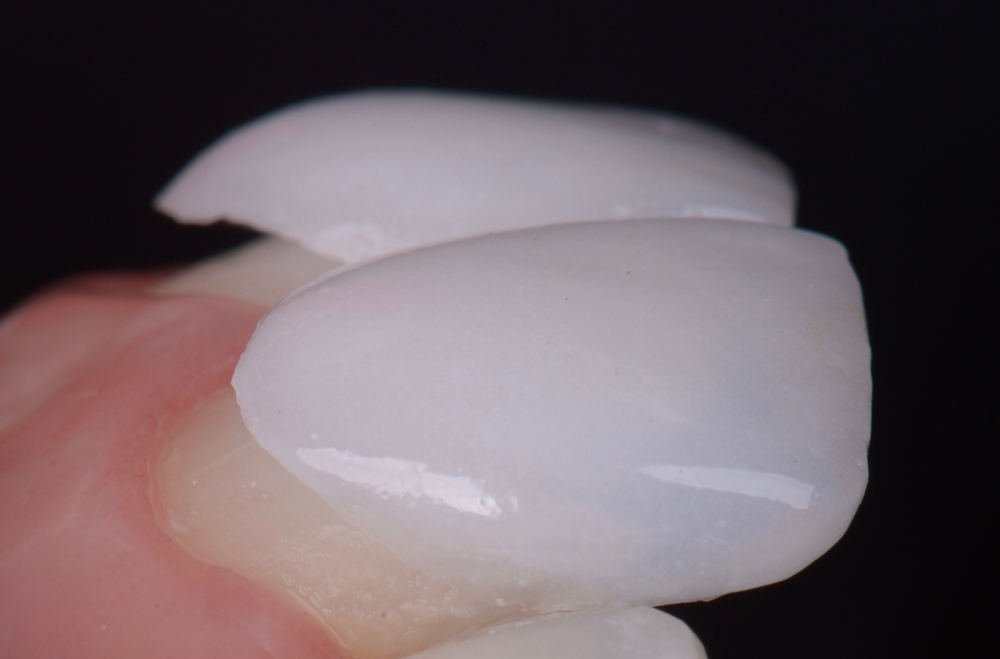Veneers are one of the most popular options in modern cosmetic dentistry. Originally expensive and therefore less accessible, changes in cost and technology have made them far more accessible to the general public in recent years.
But there are still a lot of misconceptions about exactly what veneers are and how they can help give you a great-looking smile. That’s why we’ve put together this list of some of the top things you need to know before you choose to get veneers. So why not bite into some of these critical facts you need to know?
- They’re not a replacement for your teeth
So, what is a veneer? They’re often confused with dentures, implants, crowns or bridges. But that’s not quite the case — all of those things are intended to effectively replace damaged or missing teeth. By contrast, veneers are actually wafer-thin pieces of resin or porcelain that are attached to your teeth in order to enhance their appearance. They can create a more even, whiter appearance while still looking quite natural.
- They can address quite a few problems
There’s no question that the primary reason many people opt for veneers is cosmetic. Dental Veneers can be used for addressing issues such as staining, chips and wearing while also being great for evening out the look of unevenly sized or oriented teeth. However, in addition to helping reduce the visible effects of wear and tear or damage, they can also help correct your bite pattern. In turn, this can help reduce future wear and tear to your mouth and jaw while also helping maintain better oral health in the process.
- There’s more than one type
There are two main types of veneers — resin (also known as “composite”) and porcelain. However, there are some broad differences between the two:
- Resin veneers
-
- Tend to have a slightly more artificial, “teethy” look
- Great for creating a “bright ‘n’ white” look
- Can usually be put in in a single visit
- More prone to chipping — but easily repaired with patching
- Lower overall cost
- Last up to five years
- Not permanent — attached over existing teeth
- Porcelain veneers
- Highly durable
- Natural-looking — can mimic a range of tooth shades
- Consultation and manufacturing usually takes a few weeks
- Last from 10-15 years if properly cared for
- Teeth must be reshaped to fit them
- Cannot be patched — must be replaced if damaged
Neither is necessarily better than the other, and people tend to opt for them for different reasons. The number of teeth that need to receive veneers, the cost and the desired look are all important considerations. In fact, some people even opt to be fitted with resin veneers as a bit of a test run for porcelain veneers — it enables them to decide whether or not they are comfortable with the look before opting for a more permanent solution.
- Porcelain veneers are permanent…
So veneers just attach to your teeth, right? Well, resin ones do. But it’s a little more complex for porcelain veneers. Before porcelain veneers are affixed to your teeth, some reshaping is required to allow your veneers to bond better and create an overall more even look in your mouth.
It’s important to note that this is a permanent process — once you have porcelain veneers, you can’t simply remove them and go back to your “real” teeth. Accordingly, it’s not done lightly. Your dental specialist will discuss all of the relevant details with you before you decide to proceed, including providing you with a visualisation of how your new smile will look. You’ll be able to make an informed decision and determine whether they’re right for you.
With this said, most people who opt for porcelain veneers tend to find that the improved smile and overall look of the teeth more than make up for the initial work involved.
- …but you do need to replace them occasionally
Porcelain teeth veneers are permanent, but how long do they last? Well, provided you’re looking after them properly, you can expect to get 10-15 years out of porcelain veneers. This is substantially longer than their resin counterparts — however, if damaged, they will need to be replaced. It’s not possible at the moment to repair them in the same way as resin veneers.
- Think carefully about shade
Veneers have a famous association with big, bold, white ‘n’ bright smiles. And to be fair, that’s definitely the look that some people are after, particularly if they’re opting to have their whole mouth kitted out. But there are times when a little more subtlety is preferable. If you’re only having a few teeth replaced, you probably want to opt for something closer to your existing colour. It’s possible to go too white and then end up with mismatched teeth, which can be more disconcerting than the original issue you were trying to fix.
- They’re an investment in yourself
Veneers aren’t inherently cheap, but they are a long-term investment in both the appearance and health of your mouth. More importantly, they’re an investment in yourself — your self-esteem, social and career prospects can all be enhanced when you’ve got a great set of teeth. What is a tooth veneer? It’s more than improving the look of your teeth — it’s an advertisement for you.
Additionally, most dentists offer payment plans, increasing their affordability. So if you’ve been thinking about whether veneers may be right for you, now might be the time to take the next step.
Explore your options today with Sydney Road Dental
At Sydney Road Dental Care, we’re committed to providing a wide range of dental services to our clients, including veneers. So if you’re looking to transform your smile and create the look you’ve always wanted, why not get in touch today? We’ll be more than happy to walk you through your options.

